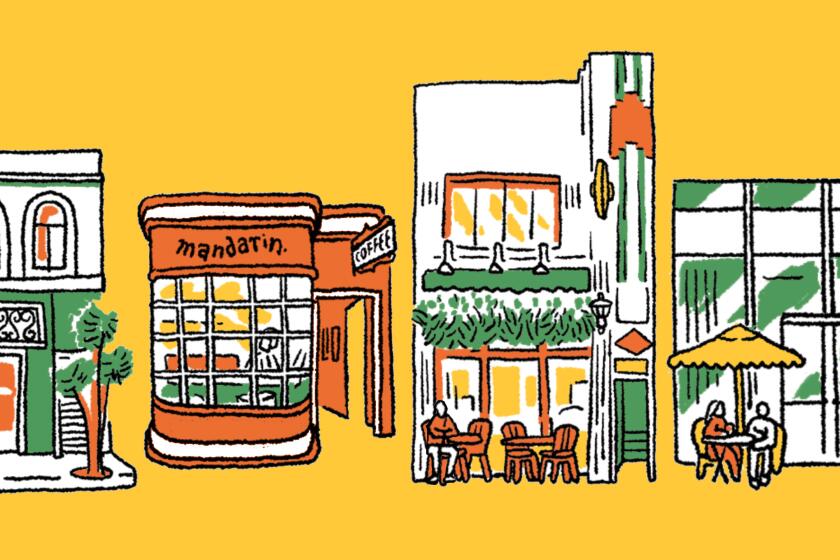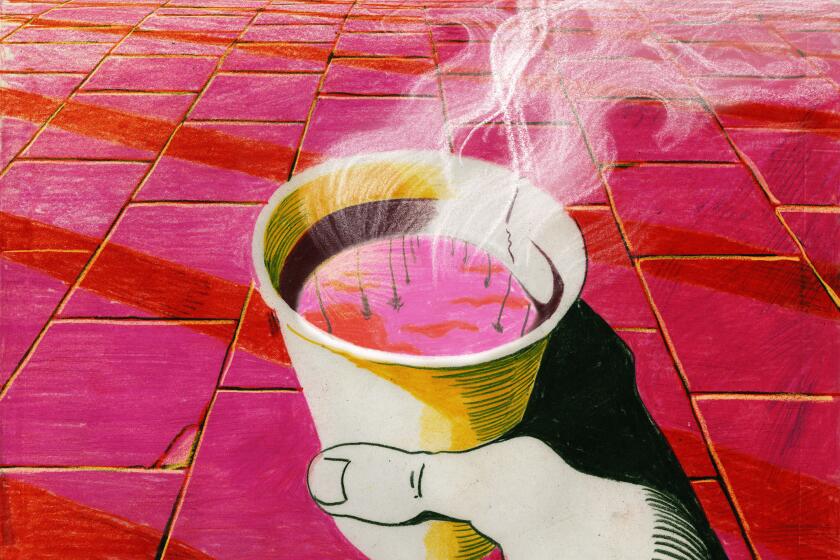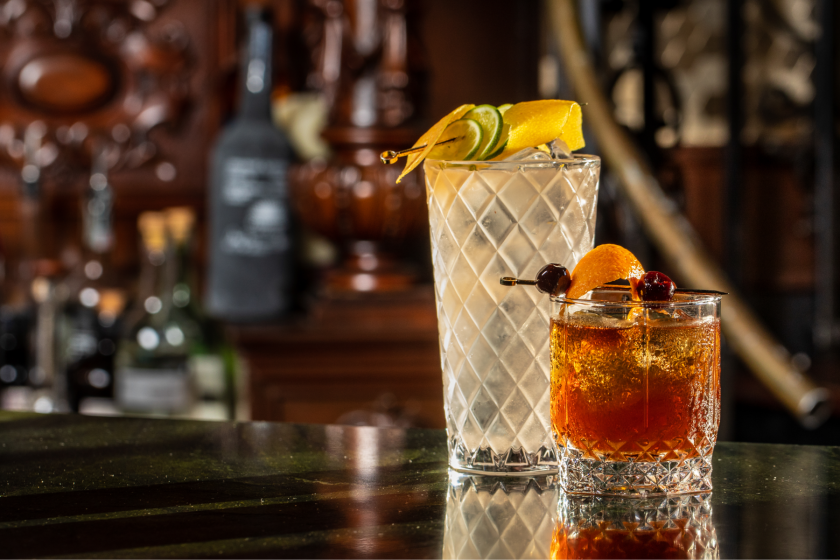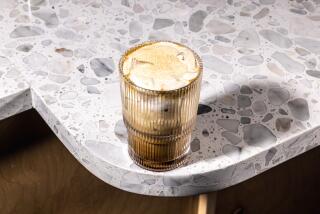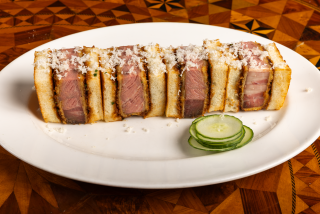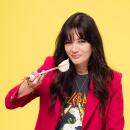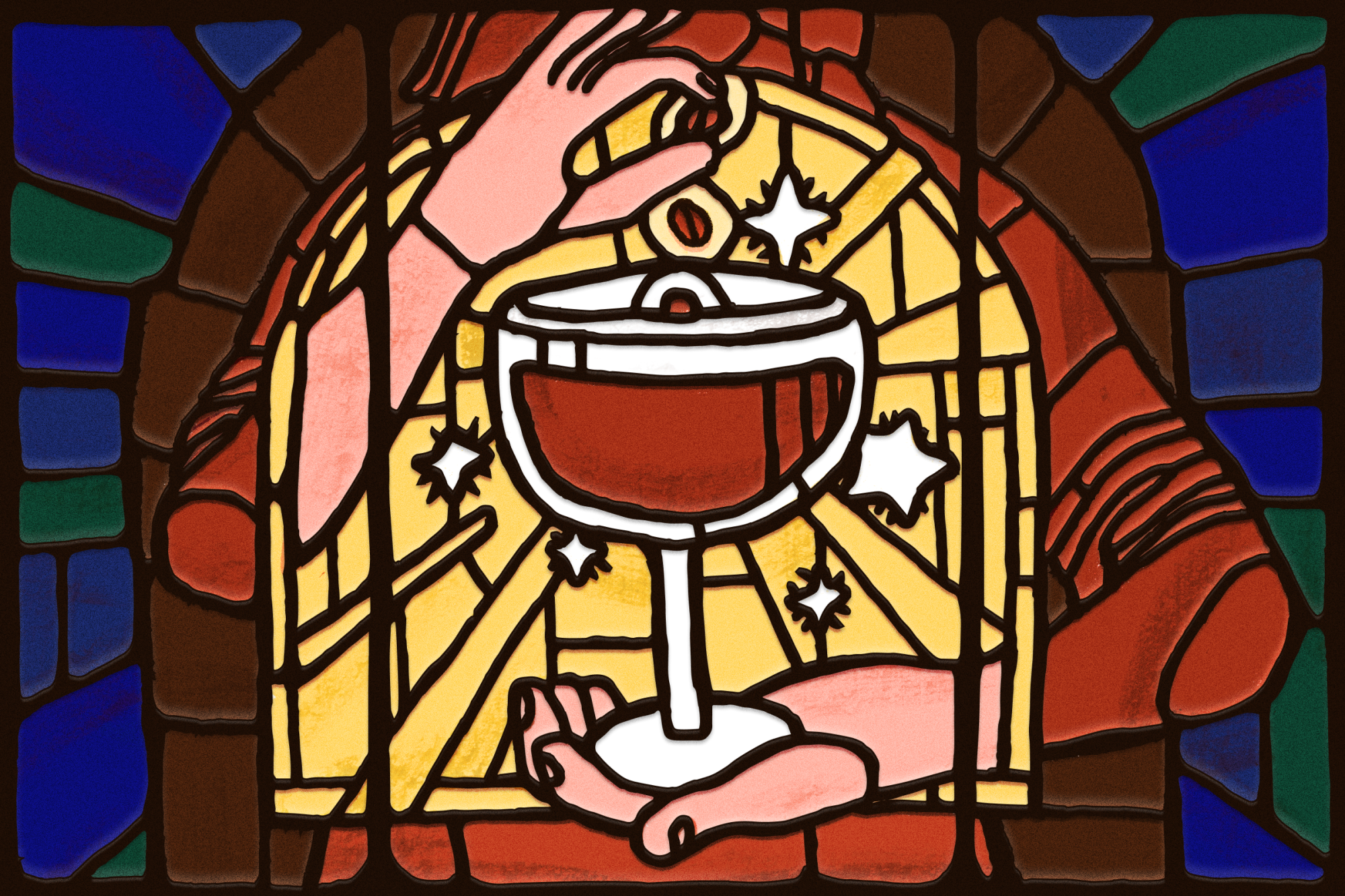
On weekends, the espresso martini is one of the top-selling drinks at the Lets Go! Disco & Cocktail Club in downtown Los Angeles.
“It’s the drink of the moment,” beverage director and co-owner Lee Zaremba said on a recent evening at the bar as the glint from a slowly spinning disco ball reflected off his face.
The Italian-style, ’70s-themed bar opened late last year with a cocktail menu that included three takes on the Negroni and a few drinks labeled “fun and citrusy” as well as “stirred and boozy.”
And even though an espresso martini is not a drink you might expect to find at a bar whose specific theme predates the cocktail’s invention in the early 1980s, Zaremba made sure to include it on his drink list.
Find the best cafes, freshest brews and your favorite beans in the coffee-shop capital of the world.
“We wanted to open with one because it’s a drink that connects cocktail culture and what mainstream people know,” he said. “Also, Red Bull and vodka sucks.”
Zaremba’s iteration has a voracious head, cut with the cold bitter snap of Intelligentsia 5-to-1 cold brew, Averna amaro, Cynar, a touch of simple syrup and vodka. It’s garnished with a smattering of grated espresso beans.
It’s never been difficult to understand the drink’s appeal. In capable hands, it can be a potent elixir that guarantees a jolt of caffeine and a sweet buzz. But after receding into the background for several years, the espresso martini is once again on everyone’s lips, showing up at bars around town, new and old.
The drink was a recent addition to the cocktail menu at Connie and Ted’s, Michael Cimarusti’s New England-inspired seafood restaurant in West Hollywood, though the restaurant has been open for nearly a decade.
What should we expect from a cup of coffee in Los Angeles? Almost anything, our critic learns.
“People were asking for it all summer long,” said general manager Matthew De Marte. “It wasn’t on our beverage list, but everyone wanted it.”
By September, a martini made with Amass vodka, coffee liqueur, Baileys Irish cream and Lamill espresso was on the menu.
“We always wonder when a cocktail is really popular, if it’s on a TV show and then people start asking for it,” De Marte said. “We just figured it was featured somewhere or a TikTok thing.”
The drink does makes frequent appearances on the reality TV series “Below Deck,” a show that features the crew of a luxury yacht. It’s a favorite among the crew and the wealthy patrons who hire the boat. It speaks to the accessibility of the cocktail, which in its basic format includes ingredients you’re likely to find at any bar: a base spirit, a coffee liqueur and espresso or coffee. It’s a drink any bartender can conjure at a dive bar, a chain restaurant in a suburb or the fanciest restaurant in a big city.
But though the espresso martini has been considered mainstream for decades now, it wasn’t an overnight phenomenon.
According to Simon Difford of the Difford’s Guide, one of the most comprehensive cocktail resources on the internet, a bartender named Dick Bradsell created the vodka espresso cocktail at Soho Brasserie in London in the early 80s . At the request of a model who was in need of a drink to “wake her up and f— her up,” Bradsell whipped up a tipple inspired by the coffee grounds littering the service station next to him. He combined fresh espresso with vodka, sugar syrup, Kahlua and Tia Maria.
Difford, who met Bradsell in the 1990s and eventually became lifelong friends with the bartender, said he didn’t have his first espresso martini until years after it was invented.
“A few of us had had a vodka espresso and it wasn’t a big drink,” Difford said. “It only started to get more traction in the ’90s when he renamed it the martini because everything else at that time was called the martini.”
Cocktails served in V-shaped glasses were all the rage at the bars in London, along with fresh fruit drinks like the watermelon martini.
“People wanted to order anything with the name ‘martini’ and that’s when it really took off,” he said.
Bradsell retooled the drink again and renamed it the Pharmaceutical Stimulant in 1998 to coincide with the theme of a bar he was working in at the time. He’s credited with inventing dozens of memorable cocktails, including the Bramble, but the espresso martini’s popularity (once it became the espresso martini) never really waned, and it’s now one of the best-known classic cocktails in the world.
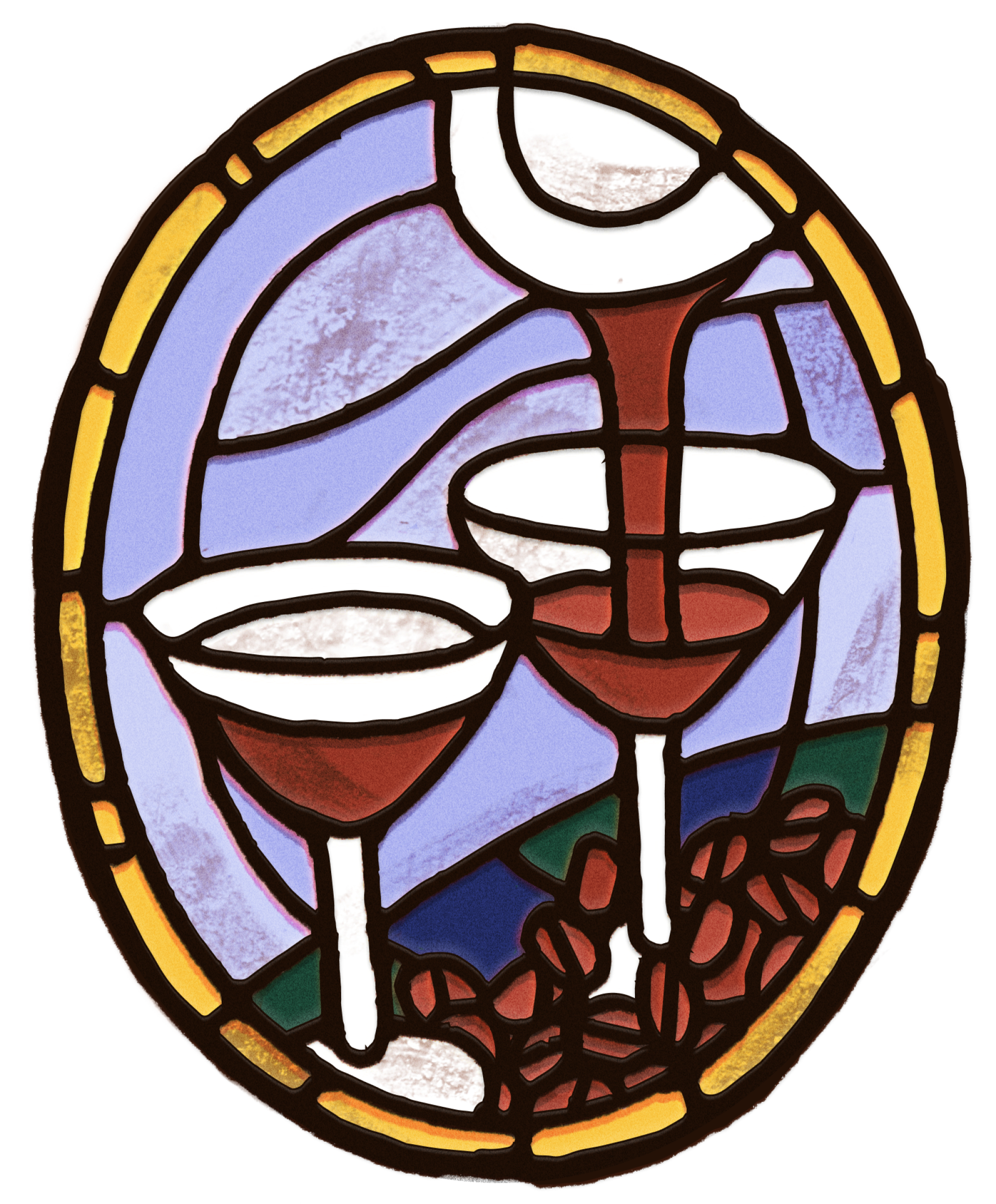
Over the years, the drink has become more representative of a “let’s party” mindset and an overall flavor profile, rather than an actual recipe. If the mere presence of a caffeine-fueled, coffee-scented dark substance is detected, that’s enough to warrant the name.
“You can swap out the base spirit,” said Difford, who prefers his made with aged grappa. “You can use cold brew instead of freshly brewed coffee. You can add other liqueurs and flavored syrups. It just works.”
Feeling thirsty? Here are the 10 best places around Los Angeles for drinks.
At the now-closed Rao’s in Las Vegas, a few years after the New York City Italian restaurant opened at Caesars Palace in the mid-2000s, the espresso martini started as a shot. Pure, the hotel’s signature nightclub, was one of the hottest spots at the time, and visitors often grabbed dinner at Rao’s before going dancing.
“You’re in an Italian place and you do shots of espresso. The owners were always drinking lots of espresso and we just kind of incorporated booze,” said Tracy Jeantet, now general manager at Rao’s in Hollywood.
The restaurant made shots with espresso and vodka, shaking them up and then doling them out in a line of shot glasses at the bar. Eventually, the drink transitioned to a full cocktail made with vanilla vodka, Kahlua and fresh espresso. Rao’s director of operations, Patrick Hickey, dubbed the concoction the Spark Plug, and he brought it to Rao’s in Hollywood when the restaurant opened in 2013.
Last year, the restaurant switched up the formula, introducing Mario’s Hard Espresso, a robust coffee liqueur, to the recipe. Bartender Ashley Burns also adds a splash of Cointreau for a hint of citrus. The Rao’s Spark Plug has one of the most impressive heads on top of the cocktail, with at least half an inch of foam that teeters on the edge of overflowing the coupe glass.
“It’s been a mainstay at the restaurant since we opened,” Jeantet said. “And we can make it with decaf espresso, so there’s something for everyone.”
Difford attributes the drink’s continued popularity to the ingenuity of his friend Bradsell, who died in 2016.
“Even badly made, it still tastes OK,” Difford said. “It’s a cocktail that is hard to really get wrong, hence it’s one that people like, because it works. It’s good that we remember the guy who came up with it.”
More to Read
Eat your way across L.A.
Get our weekly Tasting Notes newsletter for reviews, news and more.
You may occasionally receive promotional content from the Los Angeles Times.

